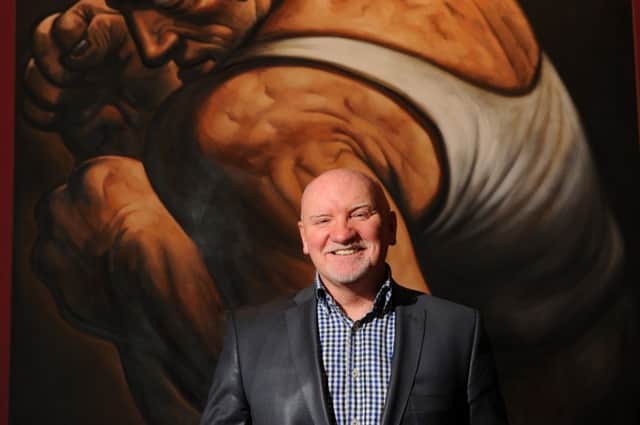Philanthropists benefit public and the government


IT HAS been said that philanthropy exists because ‘things often go wrong, and things can always be better’. It’s natural for us to respond to these two facts by seeking to help those in need and to improve others’ quality of life.
With reductions in public spending, things could certainly be better for many people and many communities. No-one can seriously expect philanthropy to replace the cuts in spending and neither would most philanthropists want their donations to merely sustain services previously funded by statutory authorities. So how should philanthropy respond to austerity? One very valuable response is to do something philanthropy has always done: invest in upstream, preventive measures which can reduce harm – and the need for public expenditure – down the line.
Advertisement
Hide AdAdvertisement
Hide AdServices and activities that help to develop people’s confidence and self-esteem, foster talents to ensure they fulfil their potential or create social connections and informal support networks within communities might be seen as ‘nice to have’ rather than essential. But there is increasing evidence to show how important these things are to people’s well-being and success in life. As austerity bites, there’s an increasing focus on the ‘prevention agenda’ to foster individuals’ and communities’ resilience and nurture the conditions, capacity and behaviour required to thrive and succeed, or at least to stay healthy and avoid decline and crisis. Foundation Scotland works with philanthropists to give effectively to chosen causes and communities. Foundation clients Nick and Jane Ferguson exemplify this approach to investing in community organisations working to make a long-term difference to people in Argyll. Through Foundation Scotland, they have supported the roll-out of a Home Start family support service to help vulnerable families give their children the best start in life, and provided long-term funding to Cowal Elderly Befrienders whose work visiting and supporting isolated elderly folk reduces their reliance on social work and health services. As interest in prevention grows, new models are emerging to attract more finance to this kind of initiative.
It’s too early to say if the Social Impact Bond mechanism will genuinely succeed in attracting new capital to invest in preventive programmes, effectively transferring the risk of supporting new approaches to tackling social problems from the public purse to the private investor. But another interesting model, pioneered in Scotland with support of the Scottish Government is worthy of attention. Public Social Partnerships involve voluntary sector organisations and a public authority collaborating on the design of a service to achieve social outcomes.
This partnership approach which seeks to fully engage all parties has a lot to commend it. Examples include The Robertson Trust and Big Lottery Fund supporting the charity Apex Scotland to pilot an initiative to reduce the number of children being excluded from Dundee schools. Collaborating and sharing intelligence is also something philanthropists and donors can do among themselves to maximise impact, avoid duplication and promote effective giving. Foundation Scotland supports The Philanthropy Fellowship, a growing network for philanthropists in Scotland to learn together, share experience, and be inspired.
It might seem both ironic and unpalatable to look to the benevolence of the wealthy to mitigate the impact of spending cuts. But philanthropy need not be paternalistic.
Alongside the prevention agenda, there is a growing awareness of the value of an assets-based or strengths-based approach to community regeneration. Scotland has a proud and enduring tradition of philanthropy, illustrated last year in the awarding of the international Andrew Carnegie Medal for Philanthropy to Sir Tom Hunter. But it is not just the super-rich that have a role to play. Most people in Scotland give regularly to good causes according to their means.
• Nick Addington is Head of Philanthropy Services, Foundation Scotland www.foundationscotland.org.uk
SEE ALSO